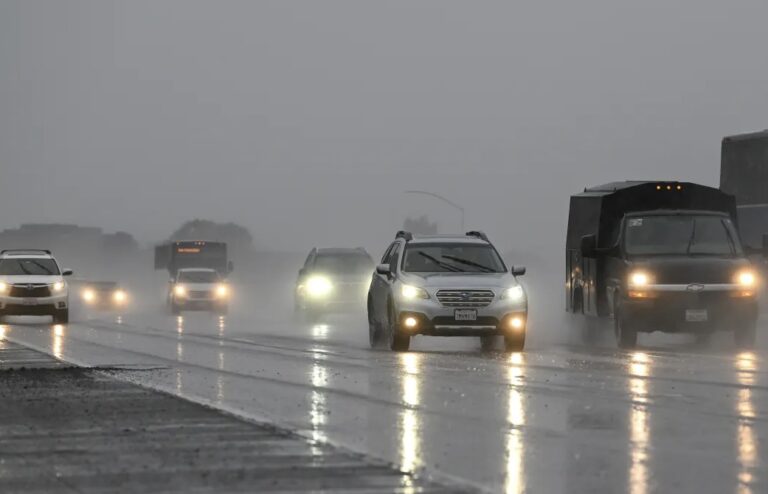Rain storms often come with saturated roadways which means some drivers may experience their vehicles glide uncontrollably on the pavement because of the excessive water. This phenomenon is known as hydroplaning.
When a car hydroplanes, the most important thing to remember is not to panic, according to defensivedriving.com. Although a person’s first instinct may be to hit the brakes, that decision could be dangerous.
Hydroplaning is defined as a vehicle “riding on water” because the tires lose all contact with the road, according to the California Department of Motor Vehicles (DMV). A slight change of direction, applying the brakes, or a gust of wind could cause the vehicle to spin out.
Another risky move that some hydroplaners make is sudden acceleration. Speeding up during a hydroplaning incident could pull the vehicle straight ahead which is dangerous if the vehicle is pointed toward the edge of the roadway, experts say.
Avoid hydroplaning
Hydroplaning can be avoided by several ways, according to the DMV:
- Drive slowly.
- Steer around standing water, if possible.
- Slow down if you hear sloshing sounds from the tires.
- Slow down when changing lanes or direction.
Experts also said to not have the cruise control engaged during heavy rain because of a sudden acceleration problem. The vehicle will recognize the build-up of water as a slowdown and ask for more power. That may cause the car to shift to a lower gear and build even more water under the tires, hence, hydroplane.
Navigate hydroplaning
If a vehicle begins to hydroplane, experts say the driver should:
- Stay calm.
- Do not use the brakes.
- Ease off the accelerator and steer toward open space.


